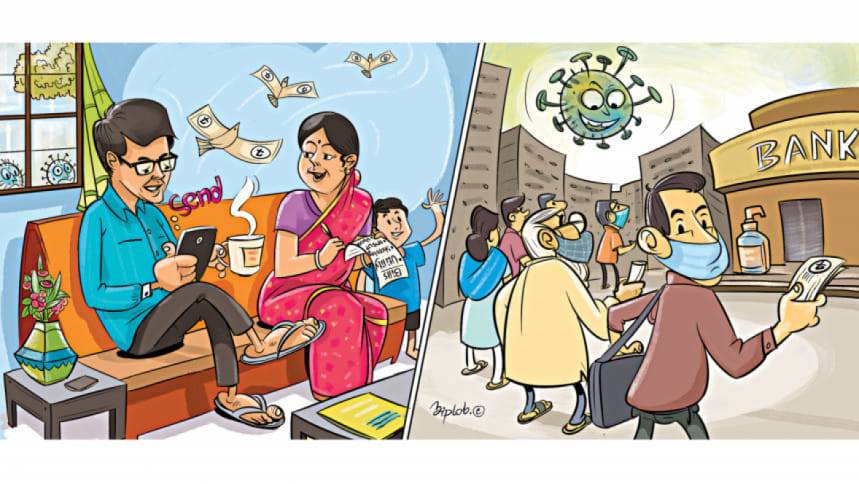Digitalisation in govt services saved time, money: Study finds

The digitalisation of 66 percent of the services offered by six ministries/divisions has saved both time and money of the ordinary people and also ensured service delivery, found a recent study by the Implementation Monitoring and Evaluation Division.
The study, which comprised of interviews with service recipients and providers, found that 92 percent saved money, 96 percent saved time and 70 percent were relieved of the hassle they faced at government offices for the digitalisation of the services.
One such beneficiary is Ramjan Ali, a farmer from Chuadanga.
The 70-year-old previously had the worst experience in land mutation as it took an inordinate amount of time, money, documents and hassle on his part.
But his quest to get the service became exponentially easier once the government digitalised the 10 services under five departments of the land ministry, according to the report, which was released last week.
Since July 1, 2019, e-mutation can be requested and in seven days land mutation can be obtained. Previously, it took at least 28 days.
At present, the services that can be requested online include e-mutation, mutated ledger, payment of land development tax, and collection of e-leaflets.
So far more than 3 crore people got land registration by paying the land development tax online without spending additional money.
Half of the people surveyed by IMED said their sufferings have reduced for the digitalisation of the land ministry's services.
As many as 161 services out of the 244 provided by 28 agencies under six ministries and divisions have been digitalised.
The ministries and divisions are: the directorate of secondary and higher education and technical and madrasah education division under the education ministry, land ministry, medical education and family welfare division and health services division under the ministry of health and family welfare, and ministry of primary and mass education
After losing his educational certificates, Md Solayman Hossain, an employee of a private educational institute, applied to his respective educational board online for a replacement. In just three days, he got copies of his certificates.
He needed to visit the board just once to collect the copies, which cost him Tk 558, according to the IMED report.
Previously, one needed to pay Tk 100-200 to just collect the form although it was supposed to be free.
To request the service, one needed to collect several documents like a general diary from the police station, a certificate of studentship from the headmaster, and photocopies of the educational certificates.
One needed to visit the headmaster for the certificate several times, had to face hassle to match the past documents from the school and also had to stand in a long queue for paying bank fees.
The process took one to six months previously, cost more than Tk 5,000 and pay five to six visits to the board, the report said.
Similarly, it now takes five days to amend the registration card and cost Tk 1,200. This previously cost Tk 3,000 and took 28 days.
Among the employees of the ministries and divisions, 30 percent said they could focus more at work for digitalisation, 11 percent said their lives have become simpler and 1 percent said they could find time for digitalisation.
The study also found resistance among the senior officers in offering services digitally. And many are not comfortable with using the internet yet to offer and request services.
Slow internet was another impediment to popularising government services online.
The report recommended a separate unit in the ministries and divisions to facilitate the delivery of the services online.


 For all latest news, follow The Daily Star's Google News channel.
For all latest news, follow The Daily Star's Google News channel. 








Comments